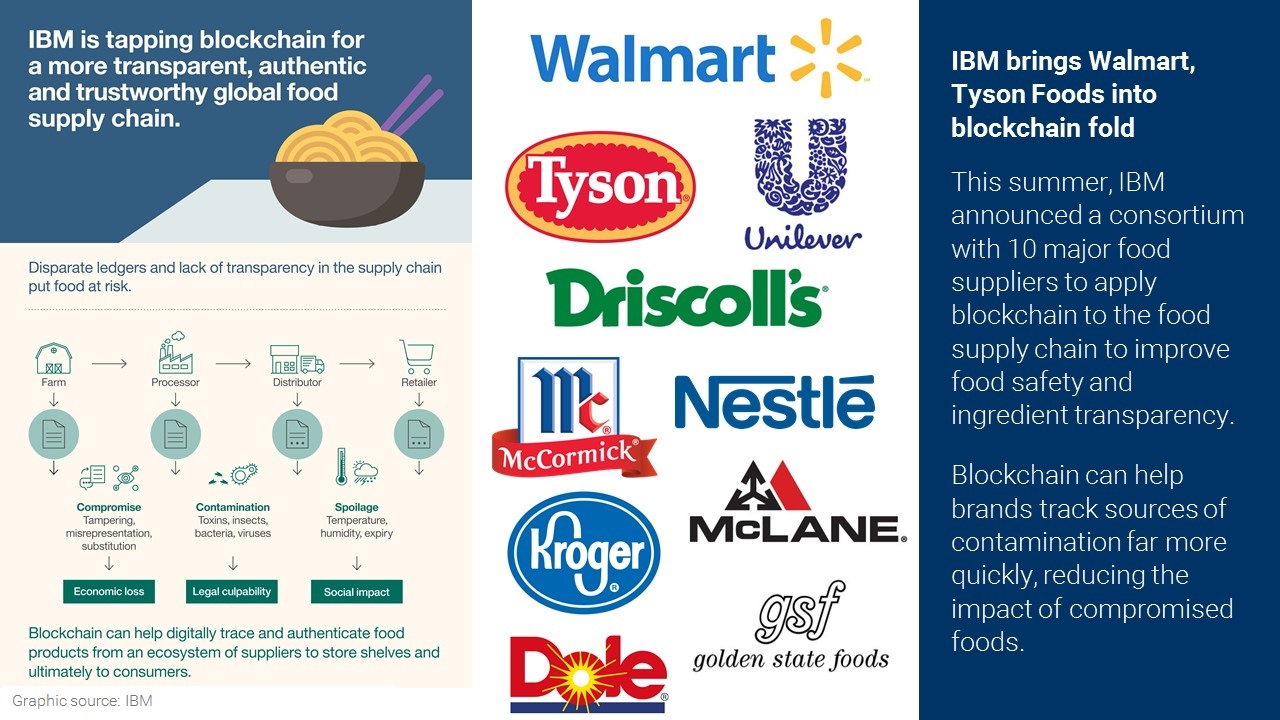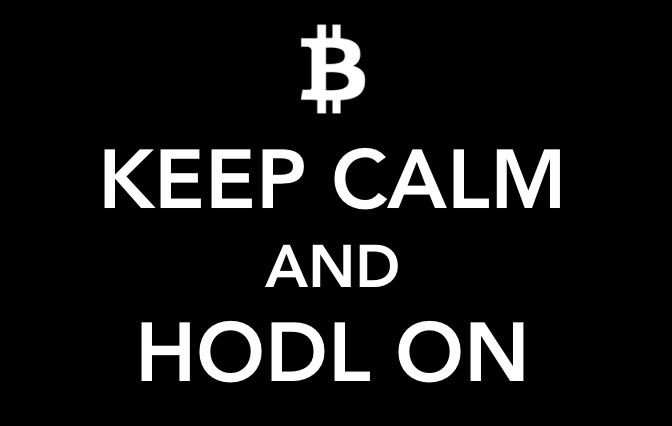From giants like IBM and Walmart to smaller CPG startups, companies are using blockchain to improve the safety and transparency of food.
Blockchain tech has primarily been associated with financial services — but increasingly it’s making an impact across industries, and the food supply chain is no exception.
In August 2017, ten of the world’s biggest CPG and food companies partnered with IBM to integrate blockchain into their supply chains. This cohort — Walmart, Nestle, Unilever, McCormick, Tyson, Kroger, McLane, Driscoll’s, Dole, and Golden State Foods — represents more than half a trillion dollars in aggregate annual global sales.
Through the partnership, IBM’s blockchain platform will help food companies increase supply chain visibility and traceability.
What’s the problem?
The global food chain is complex, bringing together farmers, warehousing, shipping companies, distributors, and grocers. Involving so many different parties also means involving many different types of record keeping methods, from Excel sheets to emails to paper printouts.
Not only is this system inefficient, it’s also imprecise. When you buy a vegetable at your local grocery store, the brand listed on the sticker may have no idea which farm the vegetable came from. Therefore, brands may not be sure how to react when something goes wrong.
And with food, things can go seriously wrong.
According to the CDC, foodborne contamination causes 48M Americans to fall ill, 128,000 hospitalizations, and 3,000 deaths every year. Produce causes nearly half of the illnesses (due to norovirus) while poultry causes the most deaths (mainly due to listeria and salmonella).
When contamination breaks out in the face of unclear record-keeping, companies can take days or even weeks to trace the source of an infection and recall appropriate products.
For example, in 2006 three people died and nearly 200 fell ill after eating spinach contaminated with E. Coli. Because the FDA could not be sure which bags of spinach contained the infection, it ultimately recommended that Americans avoid eating any fresh spinach. The spinach industry faced $74M in losses.
Why blockchain?
Blockchain acts as a public, decentralized ledger. (For a deeper dive into blockchain technology, check out our CB Insights blockchain explainer here). This ledger provides a single, unified source of data, creating a clearer audit trail and consistency across parties.
Using blockchain, food companies can much more quickly trace outbreaks back to specific sources. This could help increase consumer safety while limiting financial losses, as only the products directly impacted would need to be recalled.
Food companies can attach connected IoT tags to shipments, with each shipment assigned a unique identification number. These IDs will be tied to products’ origins, processing data, storage temperatures, expiration dates, and other information. At each stage in the supply chain, employees can simply “check in” the product using its ID number, and the blockchain will securely track the product over time across checkpoints.
Source/More: How Blockchain Could Transform The Way You Buy Your Groceries












